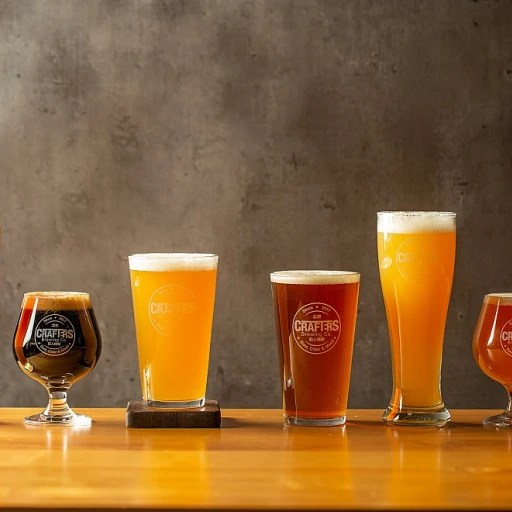
How buddhist beer got its lucky reputation
Symbols of fortune and the rise of a lucky brew
Many beer lovers are intrigued by the reputation of Buddhist-inspired beers as symbols of good luck and positivity. This association goes beyond just clever marketing. In many Asian cultures, especially in China, the image of the laughing Buddha is seen as a bringer of happiness, prosperity, and good fortune. When breweries began to feature this iconic figure on their bottles, it quickly resonated with drinkers seeking more than just a refreshing beverage.
The lucky reputation of these beers is also tied to the rituals and traditions surrounding their enjoyment. Sharing a bottle with friends or family is often seen as a way to invite good vibes and celebrate togetherness. The unique bottle design, which you’ll read more about in the next section, adds to the sense of occasion and makes every pour feel special.
- Many people choose Buddhist-themed beers for festive occasions or as gifts, believing they bring luck to the recipient.
- The branding often incorporates traditional symbols and colors associated with happiness and wealth.
- Some breweries even infuse their brewing process with a sense of mindfulness, aligning with Buddhist values of harmony and balance.
For those interested in exploring more unique beer experiences, you might enjoy reading about premium lager with a story that offers its own twist on tradition and taste.
The art behind the buddha bottle
The story behind the iconic Buddha-shaped bottle
When you first see a Buddhist-inspired beer, the bottle itself often catches your eye. The Buddha-shaped bottle is more than just a clever marketing idea—it’s a symbol of good fortune and happiness. This unique design draws inspiration from the image of Budai, the laughing Buddha, who is associated with luck and abundance in East Asian culture. The rounded belly and joyful expression are meant to bring a smile to anyone who picks up the bottle.Craftsmanship meets symbolism
Creating these bottles is a careful process. Glassmakers use custom molds to capture the intricate details of the Buddha figure, from the folds of the robe to the serene smile. The result is a bottle that feels special in your hand and stands out on any shelf. This attention to detail reflects the respect for tradition and artistry that’s also found in the brewing process itself.More than just packaging
The Buddha bottle isn’t only about looks. It’s designed to enhance the experience of enjoying the beer, making each pour feel like a small celebration. Many fans even keep the bottles as decorative pieces or gifts, adding to their appeal beyond the drink inside. If you’re interested in other creative bottle designs and flavors, you might enjoy reading about the Anheuser-Busch Dragon Fruit Peach Lager bottles, which also blend visual artistry with unique taste experiences. The art behind the Buddha bottle is just one part of what makes Buddhist-inspired beers memorable. As you explore their flavors and stories, you’ll see how every detail—from the bottle to the brew—reflects a deeper meaning.What makes lucky buddha and other chinese beers different
Distinctive flavors and brewing traditions
Chinese beers with Buddhist-inspired branding, like Lucky Buddha, stand out not just for their eye-catching bottles but also for their unique brewing profiles. These beers often use rice and malted barley, resulting in a lighter, crisp taste that pairs well with a variety of Asian cuisines. The subtle sweetness and clean finish make them approachable for both new and seasoned beer enthusiasts.
- Ingredients: Many of these beers use locally sourced ingredients, including rice, which gives them a delicate body and smooth mouthfeel.
- Brewing process: Traditional methods are sometimes blended with modern techniques, creating a fusion of old and new that reflects the evolving beer culture in China.
- Flavor profile: Expect mild bitterness, gentle carbonation, and a refreshing finish—perfect for social gatherings or quiet moments of reflection.
How Buddhist-inspired beers compare to other global brews
While European lagers and American craft beers often focus on bold hops or rich malts, Buddhist-themed Chinese beers tend to emphasize balance and drinkability. This makes them a great choice for those seeking something different from the usual beer selection. If you’re interested in exploring how other breweries create unique flavor experiences, check out this in-depth look at bold flavors and brewing history in the craft beer world.
Choosing a Buddhist-inspired beer is not just about taste—it’s about appreciating the cultural story behind each bottle, from the lucky symbolism to the careful brewing process. Whether you’re enjoying it at home or sharing with friends, these beers offer a refreshing perspective on what makes beer special.
Ordering and enjoying buddhist beer at home
Bringing the Buddha bottle to your table
Ordering Buddhist-inspired beers for home enjoyment is easier than ever. Many online retailers and specialty stores carry these unique bottles, allowing you to add a touch of good fortune to your gatherings or quiet evenings. When selecting your beer, look for the iconic Buddha-shaped bottle, which not only stands out visually but also makes for a memorable conversation piece.
Serving tips for a mindful experience
- Chill the bottle well before serving to enhance its crisp, refreshing qualities.
- Pour gently into a clear glass to appreciate the golden color and lively bubbles.
- Pair with light dishes such as sushi, steamed dumplings, or fresh salads to complement the beer’s subtle flavors.
Sharing good fortune with friends
Part of the charm of Buddhist beer is its reputation for bringing luck and positivity. Sharing these beers with friends or family can add a special touch to any occasion. The distinctive bottle design often sparks curiosity and conversation, making it a fun centerpiece for your table.
Collecting and reusing the Buddha bottle
Many fans enjoy keeping the empty bottles as decorative pieces or even repurposing them as vases or candle holders. The artistry behind the bottle makes it a keepsake, reminding you of the unique experience each time you see it.
Why buddhist beer is more than just a drink
More than a beverage: a symbol of good fortune and connection
Enjoying a Buddhist-inspired beer is about more than just taste. The unique bottles and branding, often featuring the iconic laughing Buddha, carry a message of happiness, prosperity, and positive energy. For many, sharing these beers at gatherings or gifting them to friends is a way to spread good luck and celebrate togetherness.
Embracing mindful moments with every sip
The philosophy behind Buddhist beer encourages drinkers to slow down and appreciate the present. Whether you’re admiring the artful design of the bottle or savoring the crisp, refreshing flavors, these beers invite you to be mindful and enjoy the experience. This approach turns an ordinary drink into a meaningful ritual, echoing the thoughtful craftsmanship behind each brew.
Cultural appreciation and conversation starter
Bringing Buddhist beer to your table is also a way to explore and appreciate Chinese culture. The stories behind the branding and the traditions associated with good fortune make these beers excellent conversation starters. They offer a chance to connect with others over shared curiosity and enjoyment, making every toast a little more special.













